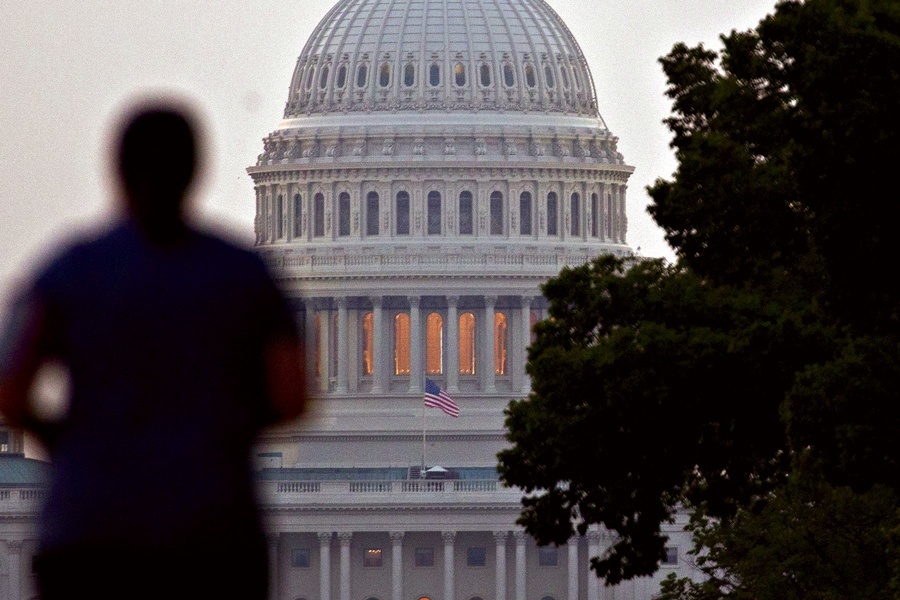

Republicans and Democrats bashed Finra at a congressional hearing earlier this week, applying similar pressure to the broker-dealer self-regulator that lawmakers have previously directed at the SEC.
The organization was hit not just from both sides of the political aisle but also from opposite philosophical directions. At the hearing Tuesday, Rep. Ann Wagner, R-Mo., and chair of the House Financial Services Subcommittee on Capital Markets, criticized the Financial Industry Regulatory Authority Inc. for being both too powerful and too timid.
“It has devolved into an overzealous and unaccountable quasi-governmental entity that looks and acts a lot more like the SEC than the member-driven SRO that Congress originally established,” Wagner said. “The composition of its board, primarily consisting of individuals not directly involved in the industry, raises particular concerns around accountability. Moreover, we have questions about Finra leadership’s supervision of its operations and activities, including its enforcement function, which market participants tell me is inflicting unnecessary and excessive costs and uncertainty on the industry.”
Wagner said that she wants “to see increased formal engagement” from Finra on Regulation Best Interest, an SEC proposal on financial advisors’ conflicts of interest when using predictive data analytics, and a massive market surveillance initiative known as the consolidated audit trail.
“And yet Finra has declined to provide formal comments to the SEC on many of these key issues, showing too much deference to SEC Chair [Gary] Gensler and his progressive agenda,” Wagner said. “For too long Finra has escaped serious oversight from this committee – under Republican leadership, those days are over.”
The highest-ranking Democrat on the full committee, Rep. Maxine Waters of California, slammed Finra for being controlled by the financial industry.
“Finra, whose leadership is appointed by Wall Street, imposes weaker penalties compared to government regulators, lets broker misconduct go unchecked, permits board member conflicts of interest, and lacks any cap on executive compensation,” Waters said at the hearing. “In fact, Finra’s CEO, Mr. [Robert W.] Cook, made $3.6 million last year, which is roughly fifteen times the salary of SEC Chair Gary Gensler.”
Cook touted Finra’s investor protection efforts, pointing to a rule under which the organization identifies and restricts brokerages with a history of misconduct and a measure to safeguard senior investors. He also highlighted Finra’s investor education and market monitoring operations.
“As the markets continue to change and retail investors are presented with new opportunities and risks, Finra remains firmly focused on its statutory mission,” Cook said at the hearing.
He later defended Finra’s financial management when a lawmaker questioned the organization’s more than $1 billion in annual operating costs.
“Our expenses have grown less than the industry, less than other regulators,” Cook said.
During questioning from lawmakers, Cook did not have a chance to respond directly to criticisms of Finra’s board or its enforcement practices. A Finra spokesperson said the organization had no comment beyond Cook’s remarks at the hearing.
Jay Gould, special counsel at the law firm Baker Botts, said cynicism about Finra stems in part from the perception that it punishes small firms while deferring to large brokerages. Its constitutionality is being challenged in court.
But the regulator is serving investors and the markets better than the rhetoric at the hearing might indicate, Gould said.
“There are really good people at Finra trying to do their job in the way the regulations mandate they do it,” said Gould, a former SEC attorney. “They’re easy punching bags for Congress people. But [is Congress] going to come up with a fix? No – particularly this Congress. They can’t get anything done.”
One subcommittee member, Rep. David Scott, D-Ga., effusively praised Finra’s enforcement of Reg BI. Scott framed his Q&A with Cook in a way that seemed to suggest that Reg BI’s effectiveness obviates the need for other investment advice reform, such as the Department of Labor’s retirement security rule proposal.
“I believe [Finra] is doing a magnificent job and I believe they are doing it in a remarkable way,” Scott said.
Although Wagner and Waters slammed Finra in their opening statements, the Q&A portion of the hearing was much more comfortable for Cook than it often is for Gensler at hearings about the SEC. The low-key, unflappable Cook for the most part did not have to break a sweat.
For instance, he was pressed about the costs and data protection vulnerabilities of the consolidated audit trail, which collects reams of information on market trades and investor accounts. But he also had an opportunity to indicate that he, too, questions the scope of the initiative.
“I would love to work with the industry, the exchanges and the SEC to shrink that database down and still try to achieve the regulatory objectives,” Cook said.

Plus, a $400 million Commonwealth team departs to launch an independent family-run RIA in the East Bay area.

The collaboration will focus initially on strategies within collective investment trusts in DC plans, with plans to expand to other retirement-focused private investment solutions.

“I respectfully request that all recruiters for other BDs discontinue their efforts to contact me," writes Thomas Bartholomew.

Wealth tech veteran Aaron Klein speaks out against the "misery" of client meetings, why advisors' communication skills don't always help, and AI's potential to make bad meetings "100 times better."

The proposed $120 million settlement would close the book on a legal challenge alleging the Wall Street banks failed to disclose crucial conflicts of interest to investors.
Orion's Tom Wilson on delivering coordinated, high-touch service in a world where returns alone no longer set you apart.
Barely a decade old, registered index-linked annuities have quickly surged in popularity, thanks to their unique blend of protection and growth potential—an appealing option for investors looking to chart a steadier course through today's choppy market waters, says Myles Lambert, Brighthouse Financial.
